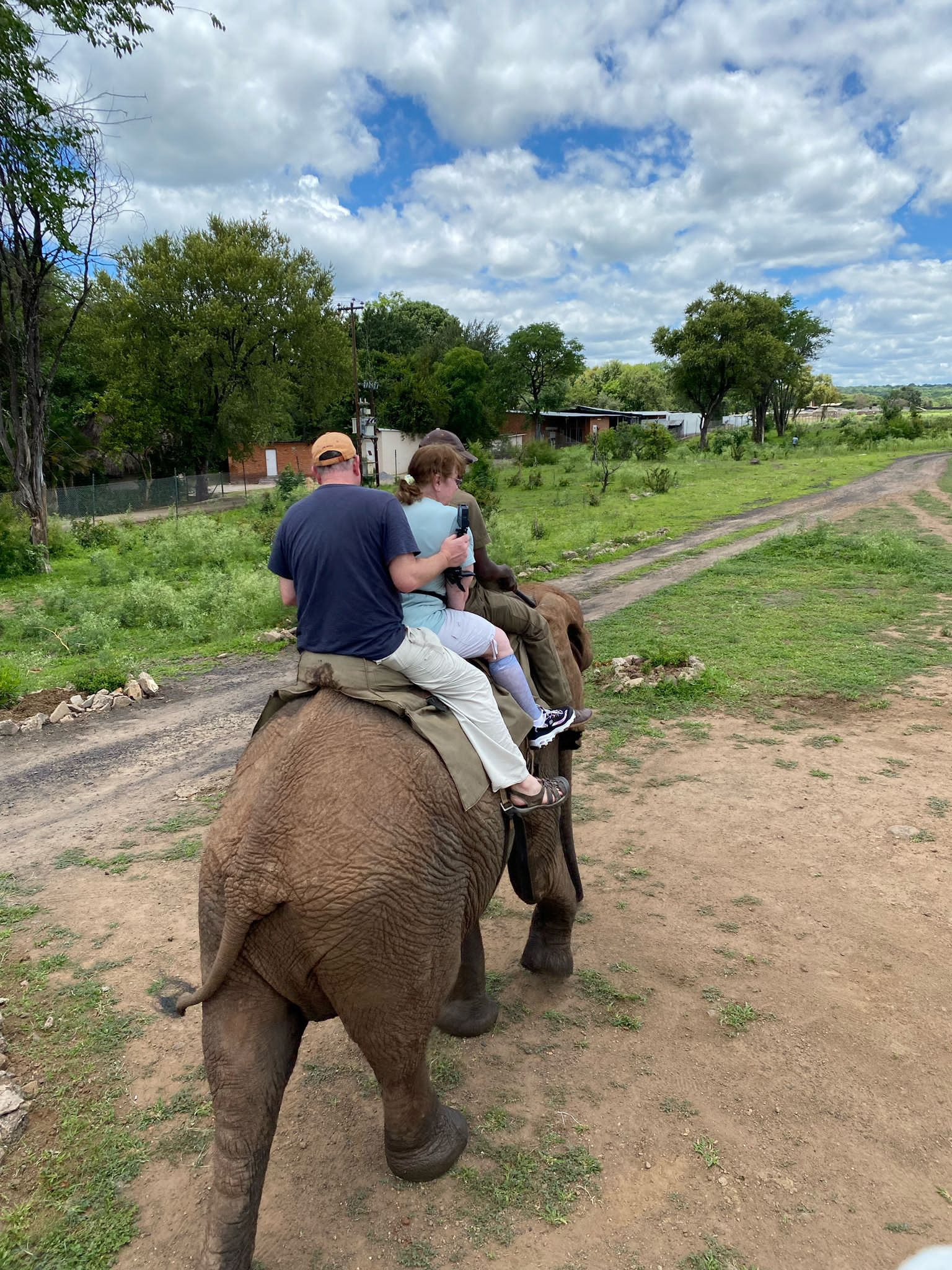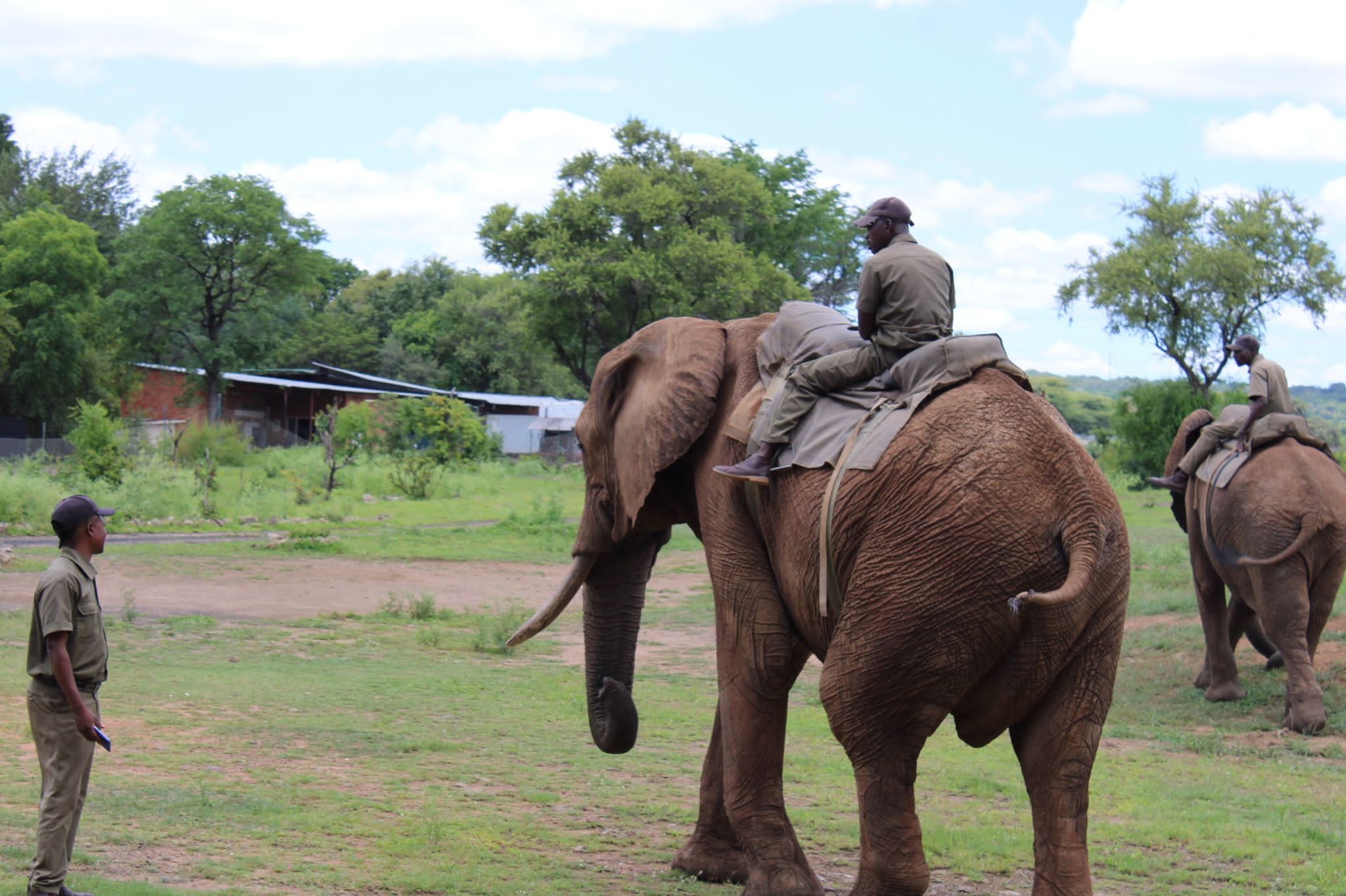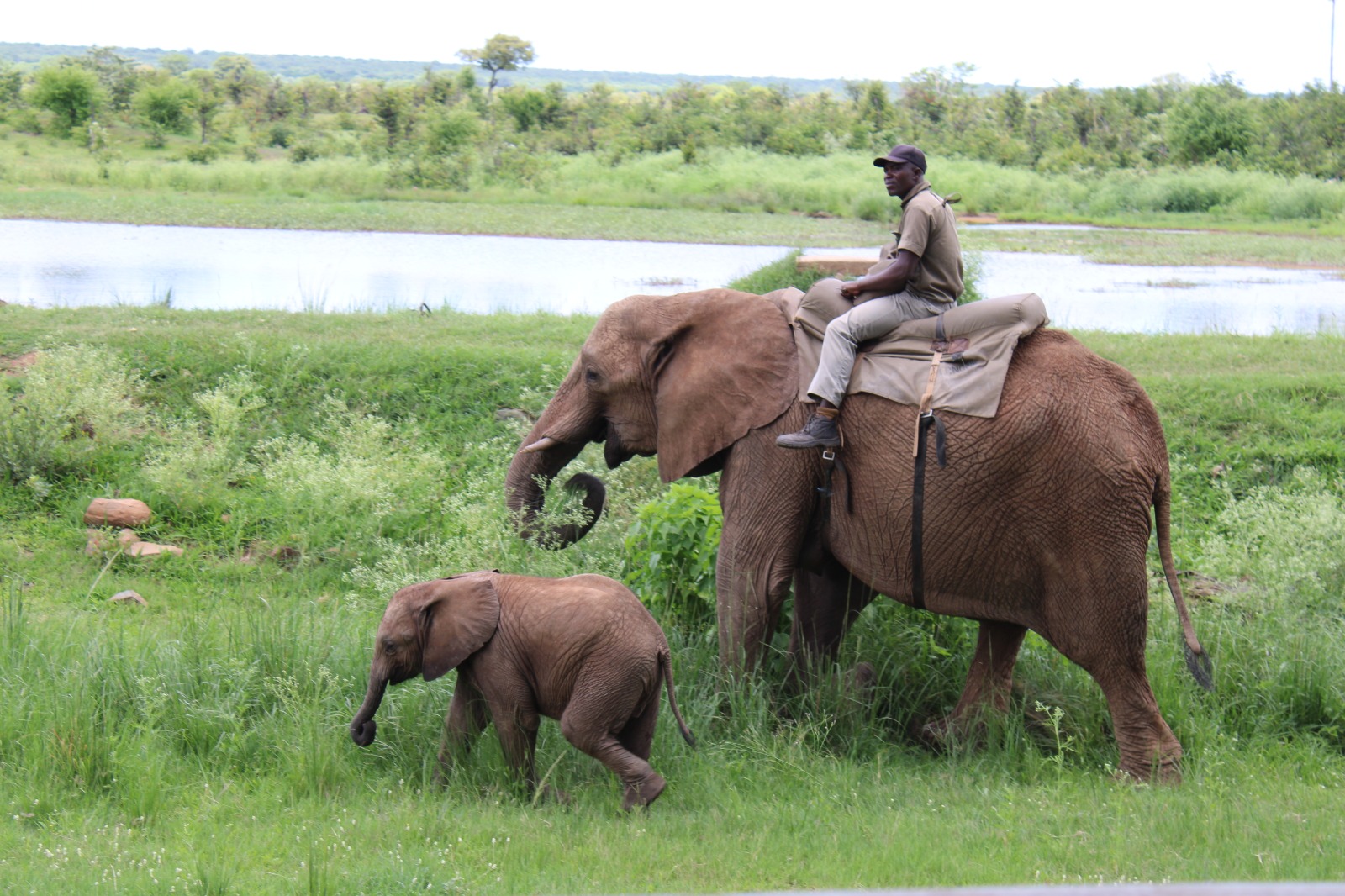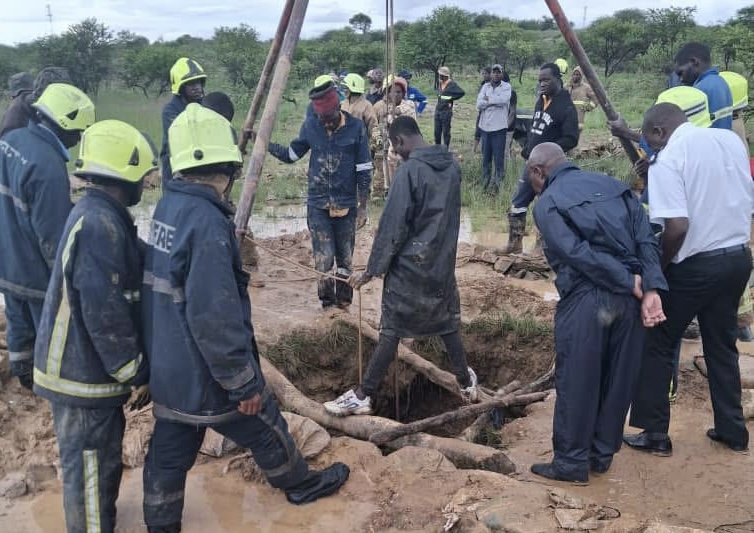BY NOKUTHABA DLAMINI
Conflict between humans and elephants is more intense in Zimbabwe – over 60 people are killed every year. Clashes are particularly frequent in areas close to the national and at times, such tragedies happen during the tour activities.
On December 23 last year, Jason Hansen, a tourist from the United States of America, together with his family witnessed a tour guide being trampled and gored by one of the domesticated elephants during an elephant ride at one of the tour companies.

The conflict, according to Hansen, happened after one of the tourist’s children dropped a shoe and the elephant attacker’s calf picked it, causing the mother elephant to protect her baby.
Hansen’s family, which included his wife, mother, two children and father in law had just crossed the border to Zimbabwe to tour the Rainforest before proceeding to do their elephant ride activity, which had always been their dream adventure.
They were met by their guide identified as Mr B, and they finished the tour at 11am before being taken to Elephant and Cheetah Experience venue.
But when they arrived, 30 minutes later, Hansen told VicFallsLive that there was another group arriving at the same time who were apparently late.
“The person in charge had asked us if we would be ok waiting a few minutes while they completed their tour,” Hansen narrated the ordeal leading to the tragic event.
“They said not more than 30 minutes, but it took them almost one hour before they completed their experience and the elephants were brought back to us.
Before the family in front of us got back the next family had arrived and appeared to be a local family and the man with the local family was arguing very loudly with the staff and I could tell that they were upset that they were being delayed.
To calm the storm, Hansen said the staff then asked them if they did not mind doubling up riders on the elephants so they could accommodate both parties on the five elephants they had for riding, although not happy, they agreed.

“My mother and I were riding on the first elephant, my daughter and son were riding on the second elephant and the third elephant with two little kids and the local family’s mom,” Hansen said.
“This elephant was also a mother elephant with an eight month old-baby that was following her around, the fourth elephant being the father-in-law and wife and the fifth the elephant had two more people from the local family. Each elephant had a keeper that was directing the elephants.
Both families were about five minutes into the ride when the incident happened.
“One of the children on their elephants lost her flip flop. The baby elephant picked up the shoe and was running around with it,”Hansen narrated.
” The keepers on the ground were trying to get her to release it and the baby went under the mama elephant causing the mama to turn sharply and all four people were thrown to the ground.
“The keeper of elephant two with my daughter and son jumped off and hid by a tree and watched as the mother of the child pulled their kid out from under the mama elephant and got away.
” My son and Daughter watched as the elephant picked up the keeper’s body and threw it against a tree and continued to stomp and gore the body and when the mama elephant was done, she came over and all ran into the bush and my son and daughter were alone on the back of elephant as it ran through the trees.
“It eventually stopped at a water hole clearing and their legs were scraped on trees and were splashed with mud by the elephant.
” My mom and my elephant immediately ran into the forest for about 20 to 30 minutes before the keeper was able to stop it from running.
” It was very painful for my mother in her hips with the jarring of the running and the keeper was using its hook to try to get the elephant under control.”
Hansen said the elephant finally started to head back and the keeper used his cell phone to call back to the others but could not keep it under control.
” The keeper could not control the elephant and it made its way back to where it found elephant three with daughter and son on it and elephant four with the baby.
” They vocalized and all of them started running again, but their keepers on the ground eventually were able to surround us in the bush and coax the elephants to head back to their caged area.”
For safety, Hansen told VicFallsLive that the elephants had to be caged and some chained
” I was helped off of the elephant and they were able to coax the elephant to kneel and tried to help my mom off. Mom fell from the elephant on top of the keeper into the elephant dung and hit her knee hard,”
“They were able to help her up and walked her out of the cage and they then got elephant three to kneel and my daughter and son ran out of the cage.
” My daughter was able to message our tour operator and they messaged Mr B who had driven to the venue and had his car back to the elephant pen and collected the four of us and took us back to the front gate, probably a kilometer from the front gate.
” None of the staff helped us after we got out of the pen. If Mr B had not arrived, we may have had to figure out a way to walk the distance back to the front gate.”
After, Hansen said there was a medic that checked out his mother for injuries to the knee and took her blood pressure.
” No one from the company came to talk to us, not police or any other authorities came to ask us about what happened, only the transportation company took us back to the border and stayed with us until the Zambian tour representative came to collect us, but this was a very traumatic experience for us especially for my son and daughter having to witness a horrific death.”
“We felt very bad for the family of the keeper who lost their life because of the mishandling of the entire situation”
Efforts to get comments from the company were fruitless as their mobile number was not reachable.
Hansen said such tragic encounters call for authorities to alert visitors to be made fully aware of the risks involved in interacting with wild animals such as the elephants.


 Slider3 years ago
Slider3 years ago
 National4 years ago
National4 years ago
 Tourism and Environment4 years ago
Tourism and Environment4 years ago
 Opinion4 years ago
Opinion4 years ago
 Special reports4 years ago
Special reports4 years ago
 National4 years ago
National4 years ago
 National3 years ago
National3 years ago
 National3 years ago
National3 years ago




